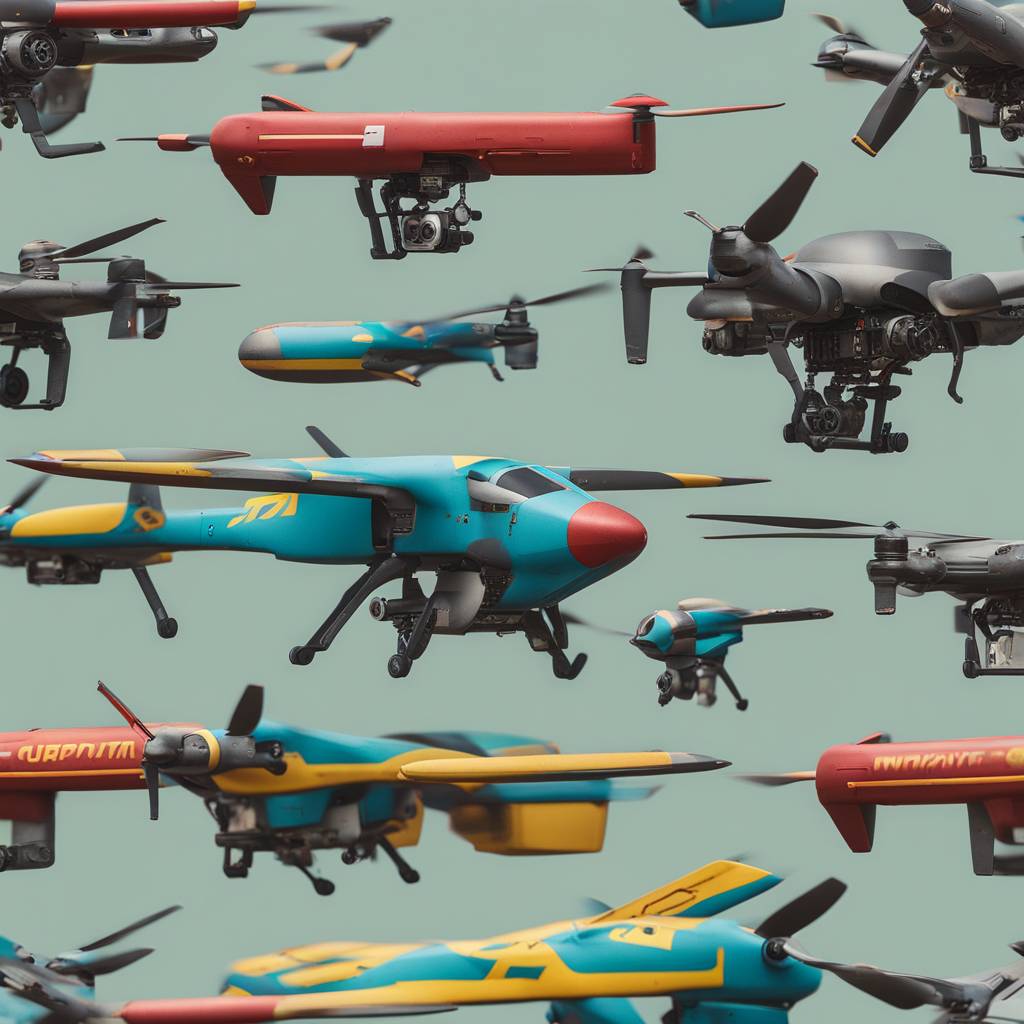Ukraine is facing a high demand for drones this year, with plans to build and import over two million drones, including both small FPV kamikazes and bombers. This surge in drone production has created a need for new drone munitions, which are being supplied by startups like Steel Hornets. Steel Hornets, a private manufacturer of weapons systems for unmanned aircraft systems, offers a range of innovative drone bombs designed in consultation with drone operators on the front lines. Their approach to supplying drone munitions is similar to Amazon, shipping small batches directly to retail customers rather than fulfilling massive government contracts.
Traditional warheads for drones are becoming scarcer, leading to a demand for more effective munitions with antipersonnel effects. FPV kamikaze drones have typically been armed with RPG rocket warheads, while quadcopter bombers use modified grenades. Steel Hornets provides a variety of drone munitions, including armor-piercing shaped charges, fragmentation weapons, and dual-purpose munitions that can effectively target tanks, vehicles, and personnel on the ground. These smart bombs are designed with 3D-printed bomb casings and balanced fins to ensure stable flight and accurate targeting.
Steel Hornets’ drone munitions are sold without explosive fillings or detonators, making them safe to handle and easy to distribute via postal services. To arm the munitions, users need to fit them with standard military detonators and pack the bomb bodies with plastic explosive. By sourcing explosive fillers from demolition work or scavenging from other munitions, the cost of the finished munitions remains affordable. Steel Hornets’ products offer a real advantage over garage-made or field-improvised alternatives due to their smart design and aerodynamic features.
With a focus on providing cost-effective and reliable drone munitions in small batches, Steel Hornets is revolutionizing the defense procurement industry. Their focus on flexibility and instant design changes through 3D printing allows them to rapidly produce innovative munitions that meet the evolving needs of drone operators. By offering a variety of drone bombs, including armor-piercing and antipersonnel munitions, Steel Hornets are meeting the demand for effective drone weapons in a changing war landscape. This light industry approach to heavy results highlights a shift in defense procurement towards small, agile suppliers like Steel Hornets.
As the drone market continues to evolve, with larger carriers and more sophisticated drone planes, the demand for drone munitions is also changing rapidly. FPV-type drones are now becoming more common for bomb drops, allowing for heavier munitions to be deployed. The shift towards small, flexible suppliers like Steel Hornets suggests a new future in defense procurement, where small startups can quickly meet the demand for specialized munitions. This approach not only offers a solution to the urgent need for drone munitions in Ukraine but also presents a model for future defense procurement in a fast-paced, evolving war landscape.


